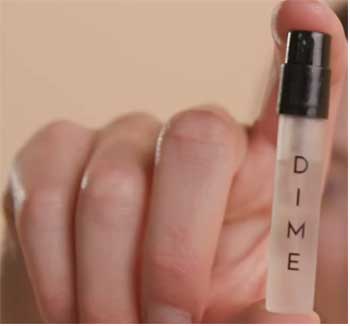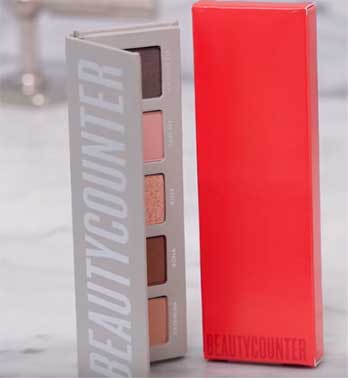The clean beauty space has exploded in recent years, with countless brands promising non-toxic, high-performing products. Two popular clean beauty companies, Dime Beauty and Beautycounter, offer extensive product ranges marketed as safer and more natural alternatives to conventional makeup and skincare.
But how exactly do these brands compare? This comprehensive guide examines the pros, cons, and key differences between Dime Beauty and Beautycounter to help you determine which is best for you.
A Brief Comparison Table
| Category | Dime Beauty | Beautycounter |
| Price | Very affordable, most under $20 | Premium, $25-$150+ |
| Ingredients | Claims to avoid “questionable” chemicals but uses some synthetics | Banned list of 1,800+ chemicals but uses some synthetics |
| Transparency | Provides some ingredient info but no testing data | Discloses banned list but not product-specific ingredients or testing |
| Certifications | None | B Corporation certified |
| Product range | Wide selection of color cosmetics | More extensive skincare and body care lines |
| Sales model | Online direct-to-consumer and retailers | Primarily through multi-level marketing consultants |
| Brand ethos | Focus on affordability and influencer founder | Emphasis on brand purpose and chemical policy reform |
Overview Of Dime Beauty

Founded in 2014 by social media influencer Hannah Bronfman, Dime Beauty positions itself as an “affordable clean beauty” line. The brand name is derived from the phrase “beauty on a dime.”
Dime offers makeup, skincare, body care, supplements, devices, and more, with most products priced under $20.
Dime states its products are vegan, cruelty-free, non-GMO, gluten-free, and made without over 2,700 “questionable” ingredients. However, the brand is not certified clean by any third-party organizations.
Dime claims to avoid certain concerning chemicals like parabens, phthalates, formaldehyde, and oxybenzone. However, the brand does use some synthetic ingredients like phenoxyethanol.
Dime Beauty is affordably priced and offers a wide selection of trendy, Instagrammable makeup products. However, the brand lacks transparency in its ingredient sourcing and safety testing. Dime provides limited information on its manufacturing processes and quality control standards.
Overview of Beautycounter
Founded in 2011 by Gregg Renfrew, Beautycounter positions itself as a “clean beauty leader” advocating for safer products. The brand offers skincare, makeup, hair, and body care, priced from $12-$150+.

Beautycounter has banned over 1,800 questionable ingredients through its “Never List” and states that every product undergoes a rigorous safety assessment. The company actively lobbies Congress for cosmetic reform and chemical oversight.
Beautycounter is a Certified B Corporation, meeting high standards of social and environmental responsibility.
However, Beautycounter does utilize some synthetic ingredients like phenoxyethanol. And while the brand tests raw materials and finished products, critics note it does not publicly disclose results.
The effectiveness of Beautycounter’s products receives mixed reviews, though many praise the brand’s high-end packaging and responsible ethos.
Pros And Cons Of Dime Beauty And Beautycounter
Dime Beauty Pros
- Very affordable and budget-friendly prices, with most products under $20
- Trendy, Instagram-worthy makeup and packaging
- Claims to be vegan, cruelty-free, gluten-free, and non-GMO
- Wide range of makeup and skincare products to choose from
- Youthful, fun branding that appeals to Gen Z and millennials
Dime Beauty Cons
- Lacks third-party clean beauty certification
- Minimal transparency around ingredients, manufacturing, and testing
- Uses some synthetic ingredients like phenoxyethanol
- Product quality and effectiveness receives mixed reviews
- Concerns over influencer-driven branding rather than safety rigor
Beautycounter Pros
- Explicit “Never List” of 1,800+ banned ingredients
- Third-party certified B Corporation, meeting high standards of social responsibility
- Actively advocates for legislation supporting cosmetic safety
- High-end, luxe packaging and branding
- Wide range of makeup, skincare, haircare, and body care
- Strong word-of-mouth reputation and brand trust
Beautycounter Cons
- Significantly more expensive than Dime, with most products $25-$150+
- Uses some synthetic ingredients like phenoxyethanol
- Does not publicly disclose product safety testing results
- Product quality and performance receives mixed reviews
- Multi-level marketing sales model controversial for some
- Limited brick-and-mortar availability, mostly sold through consultants
Also Read: Comparison Between Dime Beauty And The Ordinary.
Key Differences Between Dime Beauty And Beautycounter
Price
The most obvious difference between the two brands is pricing. Dime markets itself as “clean beauty on a budget” with most products under $20. Beautycounter is positioned as a premium line with prices ranging from $25-$150+. Those on a tight budget may find Dime more wallet-friendly.
Transparency
While both brands claim to avoid certain ingredients, Beautycounter goes further in disclosing its “Never List” banned list. However, Dime provides more ingredient specificity on its products while Beautycounter does not disclose particular ingredients. Neither posts extensive testing data publicly.
Certification
Beautycounter carrying third-party B Corporation certification sets it apart from Dime in terms of verified social responsibility commitments. Dime currently lacks any official third-party clean beauty certification.
Product Range
Dime offers a wider selection of colorful, trendy makeup products catering to a younger demographic. Beautycounter has a smaller color cosmetics line but larger skin, body, and haircare range.
Sales Model
Dime sells directly to consumers online and in select retailers like Target. Beautycounter uses a multi-level marketing model with most products sold through independent consultants. This higher-touch sales approach appeals to some but also garners controversy.
Brand Ethos
Beautycounter places heavy emphasis on brand purpose, chemical policy reform, and ingredient transparency. Dime focuses more on affordability and leveraging founder Hannah Bronfman’s influencer status to drive sales.
Also Read: Differences Between Ilia And Beautycounter.
Frequently Asked Questions (FAQ)
Beautycounter’s main competitors include:
Fenty Skin, Drunk Elephant, Tata Harper, Herbivore Botanicals, Sunday Riley, Farmacy, Indie Lee, Youth to the People, Osea, and Biossance.
Key competing brands offer premium, ethically-sourced skin, body, and haircare.
Many focus on natural ingredients while avoiding certain harsh chemicals. These competitors similarly market themselves as “clean beauty” options while commanding premium price points compared to conventional brands.
Some of the most trusted clinical skincare brands include:
Cetaphil, Cerave, La Roche-Posay, Paula’s Choice, SkinCeuticals, SkinMedica, and Obagi. Clinical
Dermatologists and skincare experts widely recommend these brands for their effective formulations backed by extensive research.
While not “natural,” these brands use well-studied active ingredients for targeting skincare concerns, with many options ideal for sensitive skin. Those seeking botanically-derived products may prefer trusted green brands like Juice Beauty, Tata Harper, and One Love Organics.
Dime Beauty was founded in 2014 by blogger and DJ Hannah Bronfman, who remains the CEO and Creative Director. The company is self-funded and has not taken any external investment. Hannah Bronfman and her team of co-workers fully own and operate Dime Beauty.
The main perks of being a Beautycounter member (called a “Band of Beauty” member) include:
10-20% discounts on products, early access to new launches, free shipping and returns, birthday gifts, exclusive promotions and free samples.
Becoming a Band of Beauty member for $58 annually can be worth it for big Beautycounter fans who spend $100+ on products monthly. Occasional shoppers may not find the same value.
Ultimately, the discounts can quickly add up to exceed the membership fee for those frequently purchasing Beautycounter’s pricey products. Consider your projected annual spending to determine if the membership makes sense.
Also Read: Differences Between Primally Pure And Beautycounter.
The Verdict
There is no definitive “better” option between Dime and Beautycounter–the right brand depends on your priorities. Those wanting the most budget-friendly choice may prefer Dime, while consumers valuing premium feel or rigorous safety standards lean towards Beautycounter.
Critically examining ingredient lists, third-party certifications, transparency policies, and pricing for specific products is crucial. Seek out independent reviews of each brand’s formulations.
Consider your personal values and what matters most in your purchasing decisions.
For the highest safety standards, certified organic brands like Vapour Beauty and RMS Beauty are options too. But Dime or Beautycounter can be suitable clean beauty introductions at more accessible price points.
Determine which brand aligns best with your individual needs and preferences. With more care, we can all make small steps towards “cleaner” routines.

